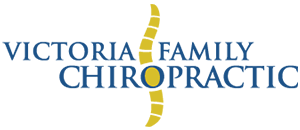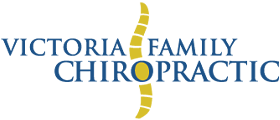Shoulder Health – Part 2

Shoulder injuries can have a big effect on our lives as I am well aware of. Movements we make every day such as reaching, pushing, pulling, lifting, or moving our arms above our heads when dressing or washing our hair can range from uncomfortable to painfully prohibitive, and many people suffer for years needlessly. We can treat ourselves using simple exercises, stretches, and more, but there are times when seeing a healthcare professional is unavoidable for a full recovery.
Shoulder Injuries – Strengthen
Muscle imbalances are common causes of shoulder injury, pain and reduced mobility. These muscle imbalances can cause impingement/tendonitis, instability, frozen shoulder, osteoarthritis, and increase the risk of sprains and strains. Typically, the muscles in front of the shoulder get overused and this pulls the shoulders forward. This can be from poor posture such as rounded forward shoulders, computer work, excessive use of the chest and biceps common in beginner weight lifters, and certain sports such as tennis and baseball. In these cases, activation of the opposing shoulder muscles as well as the rhomboids, traps, lats, and neck flexors is essential to bring balance back to the joint. This relieves pressure on cartilage, nerves, ligaments, tendons, and tight muscles. Exercises that emphasize external shoulder rotation and retraction are key. We don’t need to get a gym membership to do these exercises, either: rowing motions, external rotation and much more can be done using inexpensive bands at home. Other exercises such as Supermans and Wall Angels are effective as well at bringing balance back to the shoulder and upper back.
Shoulder Injuries – Stretch
As important as it is to activate and engage weak and underused muscles, stretching those overused muscles can be just as important for healthy joints. Here are few great stretches for shoulder injuries and a healthier more stable joint:
- For many, lengthening the pectorals (aka the pecs or chest muscles) and biceps is crucial. The Doorway Stretch is fantastic for those muscles.
- The Rotator Cuff Stretch is very good for the deltoids, supraspinatus, subscapularis, and triceps.
- Pulling your arm across your chest is good for the muscles behind your shoulder (rear deltoids) such as the teres minor, infraspinatus and rhomboids.
- Another great shoulder stretch is to simply hang. Typically, this would be done at a gym but with creativity (and safety) it can also be done at home.
Shoulder Injuries – Treat
Sometimes you need to see a healthcare professional for their knowledge, guidance, and treatment. Here’s a massage blog that has similar rehab exercises. Certain professionals such as physiotherapists, massage therapists, chiropractors, and acupuncturists are usually well versed in treating shoulder injuries but treat in a variety of ways. For instance, physiotherapists tend to focus on rehabilitative exercises, while massage therapists typically massage tight, sore muscles. Chiropractors focus on restoring the healing capacity of the body and many use muscle techniques and recommend exercises. Depending on the injury, other treatments such as medication, heat, ice, rest, and even surgery may be needed.
Sincerely,
Cale
Victoria Family Chiropractic
3200 Shelbourne St Suite 203 (250) 592-5553
www.vfchiro.com
OFFICE HOURS
Monday
7:30am - 1:00pm
Tuesday
1:00pm - 7:00pm
Wednesday
7:30am - 1:00pm
Thursday
1:00pm - 7:00pm
Friday
7:30am - 1:00pm
Saturday & Sunday
Closed
Victoria Family Chiropractic
3200 Shelbourne St Suite 203
Victoria, BC V8P 5G8




